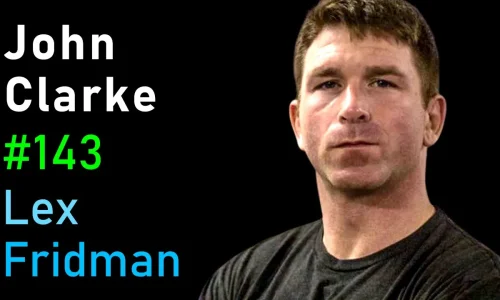See all Lex Fridman transcripts on Youtube

John Clarke: The Art of Fighting and the Pursuit of Excellence | Lex Fridman Podcast #143
2 hours 54 minutes 49 seconds
🇬🇧 English

Omnivision Solutions Ltd
- Getting Started
- Create Transcript
- Pricing
- FAQs
- Recent Transcriptions
- Roadmap